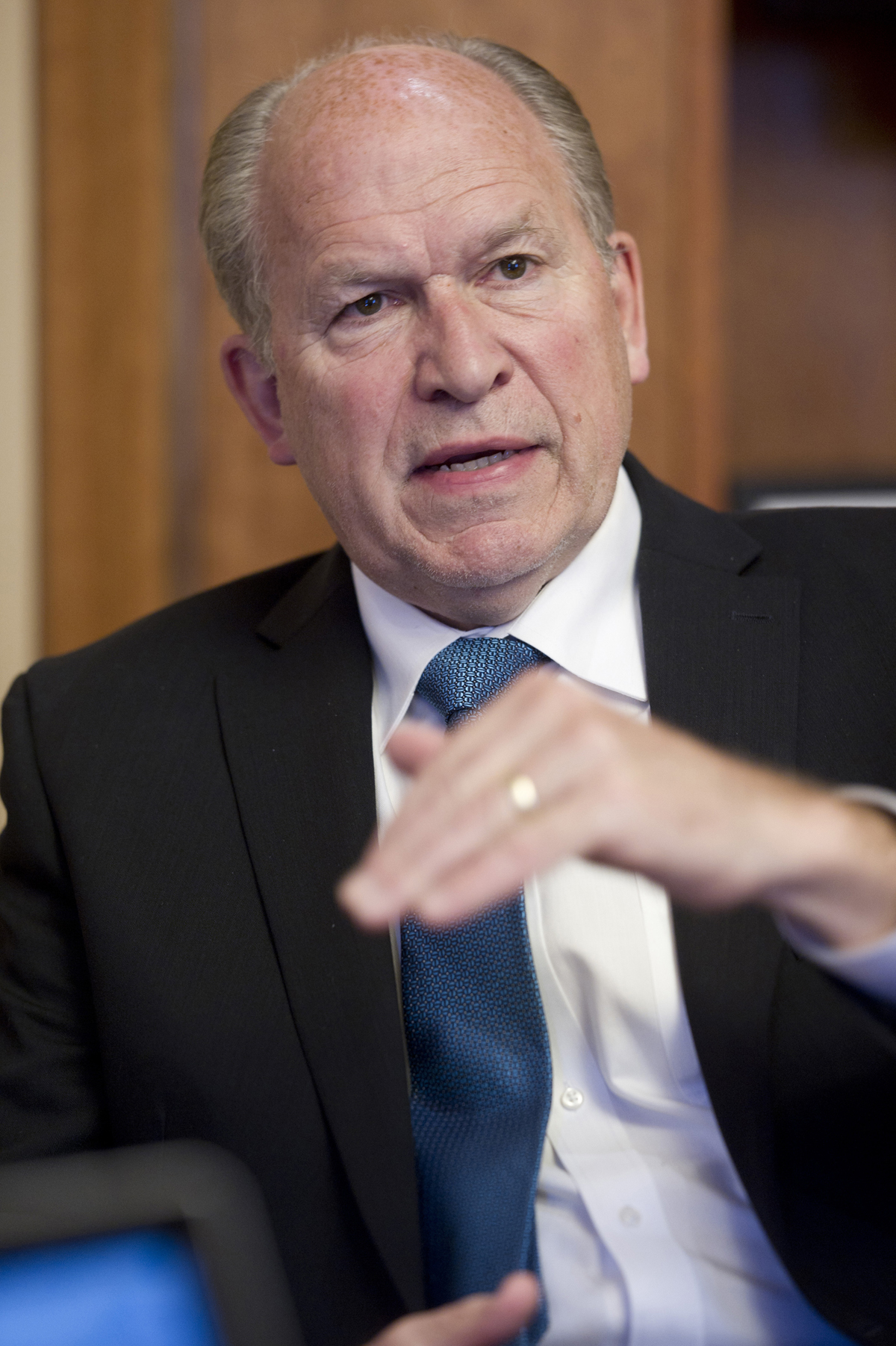JUNEAU — Gov. Bill Walker is set to deliver his second State of the State address as Alaska grapples with a multibillion-dollar budget deficit amid chronically low oil prices.
The speech planned for Thursday evening comes three days into a new legislative session in which the biggest task facing lawmakers is addressing the deficit, estimated at about $3.5 billion for the coming fiscal year. The state has faced comparably sized deficits this year and last, according to the Legislative Finance Division, and has been using savings to get by.
A ratings agency has downgraded Alaska’s credit rating and the state has been warned future downgrades are possible if significant steps to tackle the deficit aren’t taken this session.
In an interview this week, Walker said he wants to convey not only the challenges facing Alaska but also the solutions available to it. The good news, he said, is that administration has come up with a plan he says will allow the state to have a sustainable future.
It would move away from budgeting around volatile oil revenues and turn the Alaska Permanent Fund into an endowment of sorts, fed with oil tax revenue and a portion of resource royalties, from which a stream of cash would be drawn annually from the fund’s earnings reserve to help finance state government. It also would change how the annual dividend that most Alaskans receive is calculated, funding it with a portion of royalty revenues rather than basing it off the fund’s performance. Under that approach, viewed skeptically by some lawmakers, the dividend would be $1,000 this year, roughly half of last year’s payout. The historical average is about $1,150. Next year’s payout could be around $700, Legislative Finance Division Director David Teal said.
Walker has argued that if the state stays on its current track, drawing down on savings, the dividend is in danger of ending in 2020. His plan also includes reinstituting a personal income tax, increases in industry taxes and changes to state oil tax credits.
Republican legislative leaders have said they want deeper cuts to the budget than Walker has proposed. Senate Finance Committee co-chair Pete Kelly, R-Fairbanks, said Thursday that he thinks further cuts and use of the earnings reserve will be part of the approach taken this year. Senate leaders also want to pursue cost savings within Medicaid and the corrections system.
Cuts over the past year have included reduced state ferry service, an important link for communities in places like southeast Alaska; closing some trooper posts and reducing some village public safety officer positions through vacancies; and using federal funds to cover some positions and research projects at the Department of Fish and Game, the administration says.
The number of state employees for the current fiscal year is at a comparable level to 2008, according to information provided by the administration, and further cuts are proposed.

